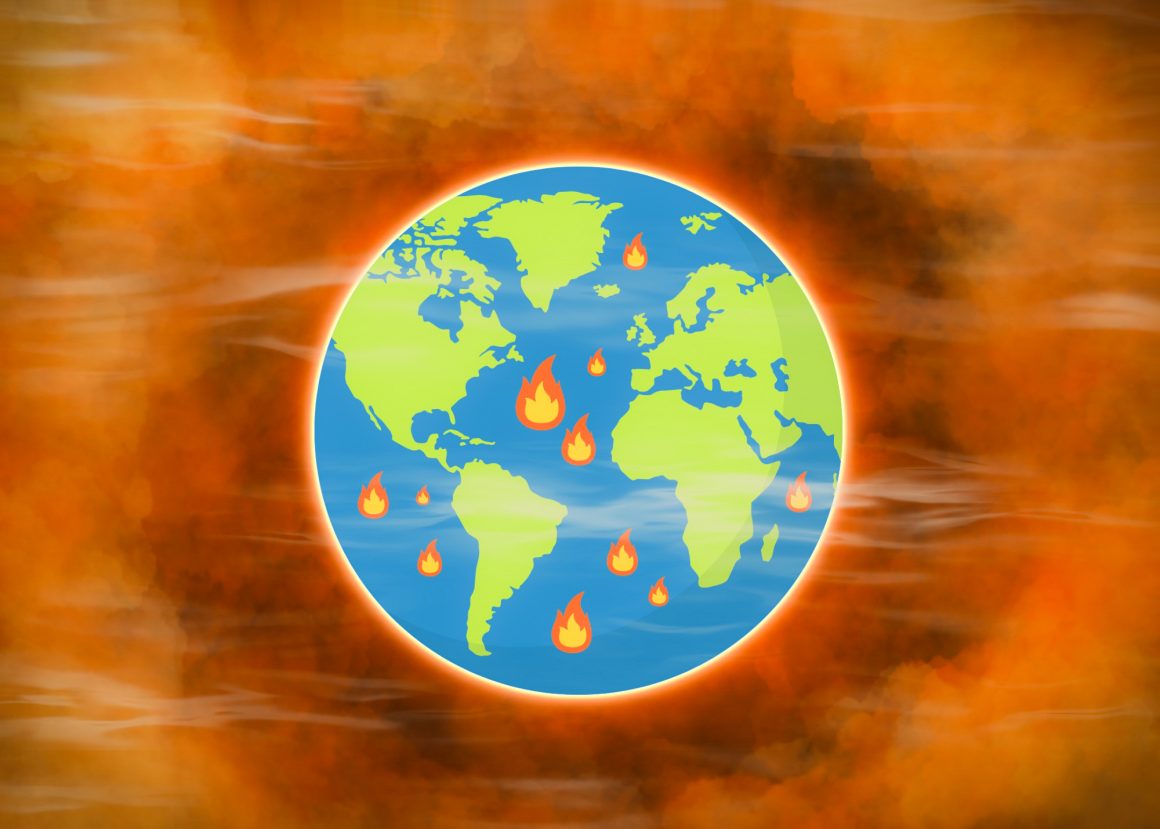
Our oceans should not be as warm as hot tubs
By Leonie O’Sullivan, September 6 2023—
Climate scientists have been warning us for decades. Now the effects of global warming are rampant across the globe. From wildfires sprinkled across the Earth to hurricanes hitting Mexico and disastrous flooding in Slovenia — Mother Nature is letting her anger be known. This summer, off the coast of Florida, the Atlantic Ocean recorded temperatures rivalling hot tubs at a gobsmacking 37.8 degrees Celsius. While some of our Floridian friends might be enjoying warm ocean baths, our friends under the sea are certainly not.
The oceans have carried the burden of burning fossil fuels by absorbing 90 per cent of the extra heat they contribute to the atmosphere. With the oceans getting hotter, the occurrence of marine heat waves (MHWs) has increased by more than 20-fold. MHWs are classified as an atypical increase in water temperature for at least five days. A famous example was “The Blob”, emerging in 2013 and spanning in size from Alaska to Mexico with dire environmental effects. The warmer waters were nutrient-poor which reduced phytoplankton activity. This caused zooplankton to encounter food shortages, and like dominos, the effects ran up the food chain. Whales were driven closer to the shores where the waters were cooler and nutrient-rich, supporting their prey. This caused increased whale entanglements in crab fisheries equipment. A large number of whales also succumbed to an enormous toxic algae bloom — caused by “The Blob” — that contaminated the krill and sardines they rely on.
“The Blob” persisted into 2016, wreaking havoc on the delicate balance of nature. This heat wave was partially caused by an atmospheric ridge of high pressure that reduced the mixing of the upper, warmer water and deeper, cooler water. This period of time experienced a mild El Niño. Now, in 2023, we are living with a much stronger El Niño and in August 48 per cent of the oceans were experiencing an MHW. Adding more fuel to the fire, the Atlantic Meridional Overturning Circulation (AMOC) is feared to be slowing down. This would cause a rise in water temperature in the South Atlantic.
If we keep continuing down this path, we will see more of the negative environmental impacts of MHWs. When coral reefs are stressed by increased water temperatures, they become bleached as they shed the symbiotic plant that gives them their beautiful colours and that is responsible for their oxygen supply. The first mass bleaching event occurred during “The Blob” in Hawaii, with a loss of 50 per cent of the corals. Coral reefs not only provide an opportunity for recreation and income, but they also shelter the coasts from storms and erosion and are an important food source.
Storms travelling over warmer water collect more water vapour and heat, resulting in stronger winds and heavier rainfall. Off the coast of California, as northwesterly winds died down, an opportunistic marine heat wave moved closer to the shore. Hurricane Hilary, fueled by this marine heat wave, pummelled its way up the Baja California peninsula and was downgraded to a tropical storm before hitting the U.S. coast and causing severe flash flooding and mudslides in August.
As water increases in temperature its volume expands, aiding rising sea levels. Melting ice at the poles is another huge cause for concern. The western peninsula of Antarctica is experiencing dramatic ice sheet melt. Not only will this contribute to rising sea levels, but the loss of reflective ice sheets will propel global warming. To the north, the Arctic is no better off and in recent decades, the Arctic has experienced stronger MHWs than any other ocean. With over one-third of the human population living within 100 kilometres of the coast, we are extremely vulnerable to sea-level rise.
Years after “The Blob” the Pacific Ocean has still not recovered. If these heat waves continue to become more frequent, marine life will not have the chance they need to bounce back. MHWs are not only disastrous to marine life but also to us land dwellers. Prevention is always important, but now we are left with a cure as our only option. We need to limit the burning of fossil fuels and unburden the oceans of absorbing extra anthropogenic heat by committing to solutions like The Paris Agreement, a legally binding international treaty on climate change. Let’s hope we are not too late to cure this.
